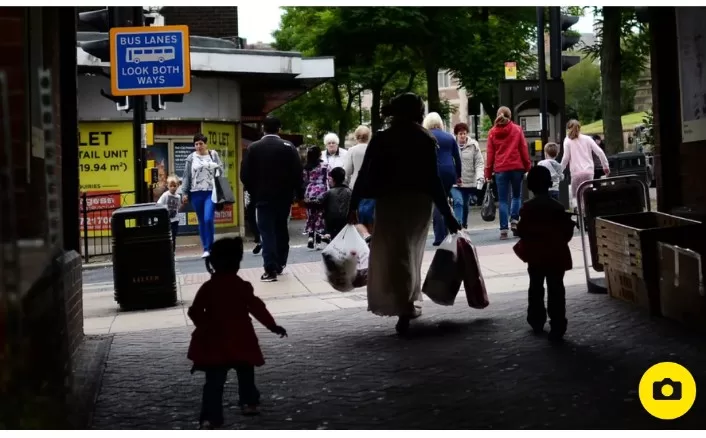A comprehensive study has unveiled a concerning and dramatic surge in destitution among children in the United Kingdom, with more than one million children suffering from severe material hardship in the past year. Destitution, defined as the inability to afford essentials like food, clothing, warmth, or cleanliness, is no longer a rare occurrence, according to the study. This alarming trend is attributed to a combination of factors, including benefit cuts and the escalating cost of living, pushing many families into extreme poverty.
The study, conducted by the Joseph Rowntree Foundation (JRF), found that approximately 1.8 million UK households, comprising nearly 3.8 million individuals, experienced destitution at some point in 2022. Shockingly, one million of these affected individuals were children. Half of the destitute households struggled to survive on less than £85 per week after covering housing costs, and a quarter reported having no income whatsoever.
Paul Kissack, the CEO of JRF, criticized the government’s inaction in the face of rising destitution, emphasizing that addressing this crisis is an urgent moral imperative. He stated, “The government is not helpless to act; it is choosing not to. Turning the tide on destitution is an urgent moral mission, which speaks to our basic humanity as a country, and we need political leadership for that mission.”
Professor Suzanne Fitzpatrick, a co-author of the study from Heriot-Watt University, described the escalating destitution as “morally reprehensible” and asserted that the UK government has shirked its responsibility to its most impoverished citizens. Urgent action from all levels of government is required to address this social emergency, she stressed.
The study defined destitution as the inability to meet basic physical needs, such as staying warm, dry, clean, and fed, either due to insufficient clothing, heating, shelter, or food, or because household income falls below a minimum threshold after accounting for housing costs.
The research also included interviews with individuals experiencing destitution, revealing dire circumstances:
– Adults often reported an inability to afford more than one meal a day and frequently went hungry to ensure their children could eat. Food banks and assistance from relatives became essential for groceries.
– Over half of destitute adults regularly went without toiletries, hygiene products, and cleaning items, relying on food banks to meet these basic needs.
– The purchase of new clothing and footwear was deemed a luxury, with respondents primarily buying new clothes only for their children, such as school uniforms and trainers.
What’s particularly concerning is that destitution, once primarily associated with immigrants ineligible for social security support, is now predominantly experienced by UK nationals who receive welfare benefits, particularly families. One in ten destitute households includes working adults.
Disabled individuals, people with long-term chronic health conditions, and Black British, Caribbean, and African households were found to be disproportionately affected by destitution. The number of destitute lone parents nearly tripled between 2019 and 2022, and the number of children experiencing destitution tripled since 2017.
One of the most striking findings of the study was the increasing reliance on charities and parents due to the erosion of state support for those experiencing severe hardship. In 2022, more than 574,000 destitute individuals received support from food banks, a significant increase from 214,000 in 2019.
The UK’s social security system was criticized for being “full of holes,” and it was noted that meager benefit rates pushed individuals into severe hardship. The two-child benefit limit and benefit sanctions were also identified as contributing factors to destitution.
The JRF called on all political parties to commit to a plan to eradicate destitution, which includes an overhaul of benefit rates to ensure that universal credit provides an “essentials guarantee” to protect households from severe hardship.
In response, a government spokesperson emphasized their efforts to address poverty and support low-income families. They highlighted measures such as raising benefits by over 10% this year, increasing the national living wage, and investing in job support to help people out of poverty.
Despite these claims, the study underscores the urgent need for comprehensive action to combat destitution and ensure the well-being of the most vulnerable in the UK.




